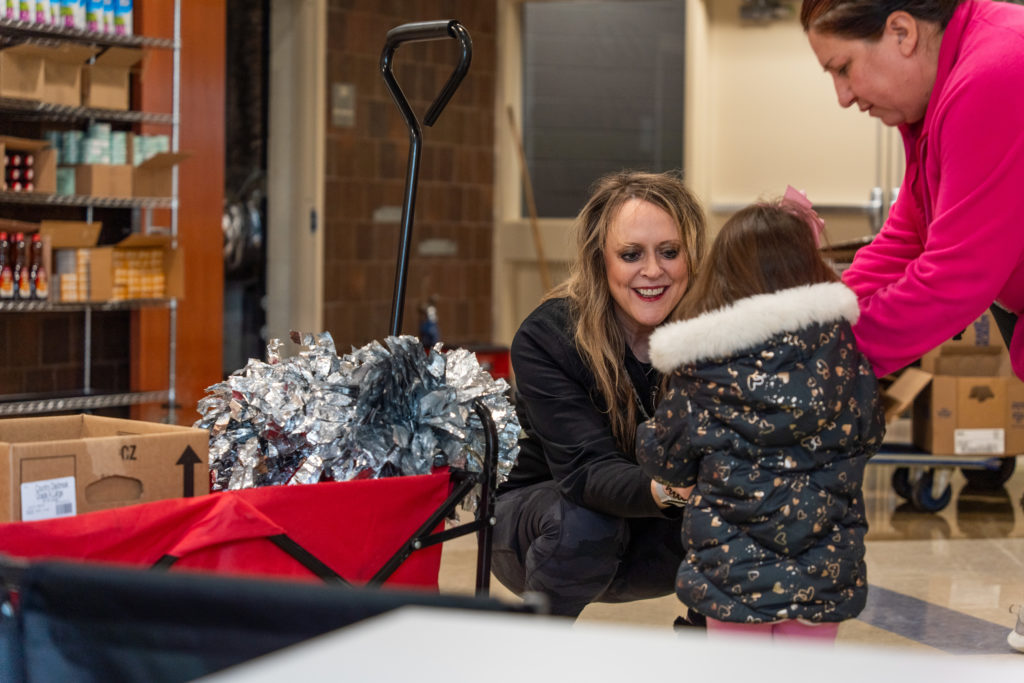Have wagon, will travel

DES MOINES, Iowa (Feb. 23, 2024) — Loryssa Rippey notices little things. Details and cues other people might miss. It’s a skill that served her well in a 25-year commercial real estate career.
So when the longtime volunteer at Des Moines Public Schools’ King Elementary pantry observed a few guests taking far too little food to feed their families, she was perplexed.
The pantry is fully stocked by Food Bank of Iowa, free of charge. Nutritious food is plentiful and culturally appropriate – an important consideration for a school with 94% minority enrollment. Every Friday afternoon when the pantry is open, Rippey and her fellow volunteers greet families from Ukraine, Latin America, Asia, Africa.
When Rippey noticed pantry shoppers avoiding “heavy items” – staples like potatoes, flour and milk – she began to troubleshoot. These same folks declined offers of help to their cars, she said.
‘Wheelin’ for good’
That’s because they had no cars. And so they were taking no more food than they could carry on the walk home.
Volunteers aren’t allowed to drive families, but Rippey quickly found a solution: an old wagon just sitting in her garage. “Functional, but heavy,” she said.
“Families without transportation started saying yes to more food, because now they had a way to get food home,” Rippey added.
What started with one wagon has now become a fleet of three, with volunteers walking 10 or more families home with their groceries every Friday, all year through – up to a mile each way. Rippey calls her effort “wheelin’ for good,” and hopes other pantries will consider wagon delivery as a way to serve guests.
Rippey’s wagon is decked out with silver pompoms (“I like to let the kids play with them,” she said.). As a wagon chauffeur, her personality shines through all kinds of weather. In the winter, she layers on snow pants, boots, a heavy coat and scarves. In the summer, she wears a straw hat.
“It keeps away the sun and adds character,” Rippey said.
She has plenty of that, yet beneath her joyful spirit is a serious commitment to feeding kids. Adopted as a child, Rippey did not face food insecurity but welcomed foster siblings who told her about their prior lived experience – how they’d often gone hungry and searched for food in a hospital dumpster. Even when they joined Rippey and her parents in a stable and loving home, “some of the children would hoard food and stash it.” That is the scarcity mindset.
Even as a child, she said, “I was profoundly sad and disgusted.”
The trauma stayed with her.
“I knew I needed to do something about it.”
Something tangible
For well over a decade, Rippey has dedicated herself to hunger relief. She draws parallels between her longtime career and her volunteer work.
“Real estate is tangible. Volunteering with the food bank is tangible. You see the outcome. You ask yourself, ‘How can I make something good, better?’ You pay attention. I want to make sure the friends we serve have the best experience possible.
“I have a profound love and passion for this mission,” she said. “I paid attention.”
